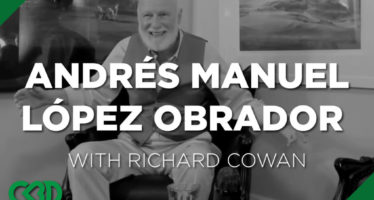Union dues ruling by Supreme Court not a CTA headache yet

The U.S. Supreme Court’s June decision in the Janus v. AFSCME case that public employees couldn’t be compelled to pay union dues was widely seen as a game-changing moment in U.S. politics.
The coverage on The Atlantic website was typical. It called the decision, which stemmed from a lawsuit brought by Illinois state employee Mark Janus, a “huge blow” to public sector unions and suggested the decision had the potential to “end” such unions in America.
But five months later, the experience of the most powerful public employee union in the nation’s largest state undercuts the assumption that Janus would take a quick toll on unions’ clout. In supporting Assemblyman Tony Thurmond, D-Richmond, for state superintendent of public education against Marshall Tuck, the California Teachers Association spent $16 million as of Oct. 31 – $5 million more than it did in the entire 2014 superintendent election, where the union supported incumbent Tom Torlakson over Tuck, a former Los Angeles school executive with deep support from charter school advocates and a loose coalition of tech billionaires.
Torlakson narrowly defeated Tuck. This election, Tuck and Thurmond have been trading the lead in recent days. With millions of votes yet to be counted, no journalism organization has called the race.
The CTA does not issue regular updates on its membership status. But a recent Sacramento Bee analysis suggested that the union, as in previous years, had 90 percent membership among the 325,000 teachers it represented. So while it’s lost dues from the 10 percent of teachers who reject union membership, the CTA still collects more than $150 million in dues annually – making it the most powerful force in the California Democratic Party.
Union clout to be tested in coming fight over funding
The extent of the CTA’s clout is likely to be tested soon – whether Thurmond or Tuck is elected. That’s because both have said they oppose one of Torlakson’s most controversial, union-favoring decisions: His 2015 announcement that the extra funding going to schools with disproportionate numbers of English learners, foster children and impoverished students could be spent on general needs, such as raises for teachers.
Torlakson’s decision, which overrode a directive from a lower-ranking official in the state Department of Education, spurred outrage in education reform circles. The Local Control Funding Formula – the 2013 state law changing how districts were allocated state dollars – had been pitched as creating a lock-box of dollars that would be spent only on helping underachieving students.
But Torlakson’s decision had the effect of turning the local-control funding into a de facto block grant. Many districts have used the funds for employee raises.
If Thurmond or Tuck revive the lock-box theory of how the funds can be spent, that’s likely to create huge headaches for most school districts, which have received an average of $8 billion a year in local-control dollars since the law took effect.
Newsom close with both teachers unions and reformers
A key factor in the coming fight over funding is the position taken by Gov.-elect Gavin Newsom, who was strongly backed by the CTA but is also friends with the tech tycoons who want education reform. The governor’s control over parts of the Department of Education’s budget gives him a powerful lever to use on the state superintendent.
On the campaign trail, Newsom said teachers are underpaid and schools are underfunded. But he’s also rejected Gov. Jerry Brown’s claim that education reform is a “siren song” in which trends come and go but schools never get better. In interviews, Newsom has noted the success of education reform in union states like Massachusetts and New Jersey.
It’s unclear when the count of the Thurmond-Tuck vote will be complete. But the recent statewide election with the most parallels to the race offers encouragement for Thurmond, a former social worker.
In the 2010 attorney general’s race, Los Angeles District Attorney Steve Cooley, a Republican, took such a substantial early lead over San Francisco District Attorney Kamala Harris that the San Francisco Chronicle pronounced him the winner on election night. But as millions of provisional and late ballots were counted, the tide turned steadily toward the union-backed Democrat. Three weeks later, Cooley conceded when Harris’ lead topped 50,000 votes. Harris ended up winning by more than 74,000 votes – about 1 percent of total voters.
Chris Reed
Chris Reed is a regular contributor to Cal Watchdog. Reed is an editorial writer for U-T San Diego. Before joining the U-T in July 2005, he was the opinion-page columns editor and wrote the featured weekly Unspin column for The Orange County Register. Reed was on the national board of the Association of Opinion Page Editors from 2003-2005. From 2000 to 2005, Reed made more than 100 appearances as a featured news analyst on Los Angeles-area National Public Radio affiliate KPCC-FM. From 1990 to 1998, Reed was an editor, metro columnist and film critic at the Inland Valley Daily Bulletin in Ontario. Reed has a political science degree from the University of Hawaii (Hilo campus), where he edited the student newspaper, the Vulcan News, his senior year. He is on Twitter: @chrisreed99.
Related Articles
Obamacare California means new Dem voters
June 21, 2013 By Katy Grimes Anyone still on the fence about the criminality of Obamacare only needed to read
CalWatchdog Morning Read – October 5
Wells Fargo fallout Trump’s past fallout Study: veterans and ex-cons suffer most from professional license mandate Legislative candidates go into
Mexican President Andrés Manuel López Obrador Announced Focus on Allowing Only Medical Cannabis
Sponsored by CBD Seniors This article was originally published on CBD Seniors. To view the original article, click here. The




